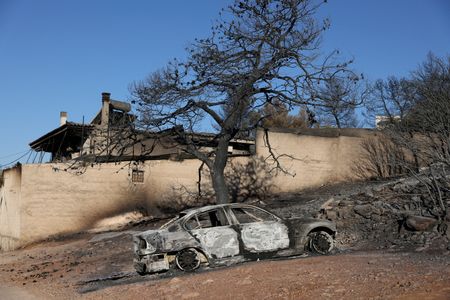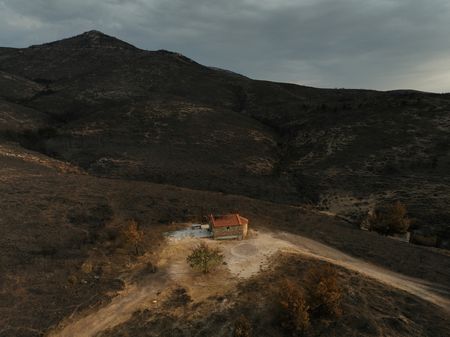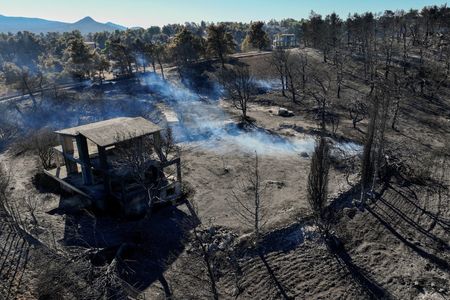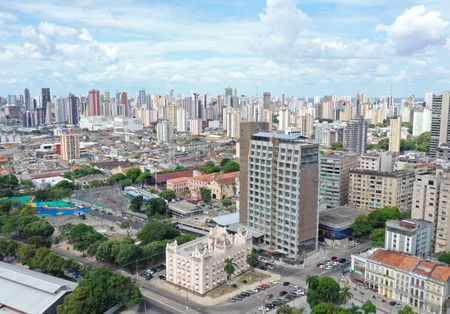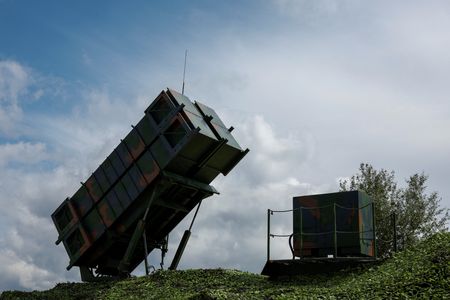(Reuters) -The soil surface temperature in areas around Greek capital Athens rose in some places by as much as 10 degrees Celsius since July 2024 after big fires destroyed vegetation, research released on Wednesday by the Athens National Observatory said.
The analysis by the state-supervised research institute’s Meteo unit was based on high-resolution satellite data that can record the ground surface temperature in detail. The tool can show the impact of natural disasters, such as forest fires, on an area’s microclimate.
Summers have become increasingly hot and dry in Greece, with rapidly changing winds fuelling more destructive wildfires that are hard to tame.
Last August, during Greece’s hottest summer on record, a woman died and 10,000 hectares of land were burnt in a wildfire that spread from a forest into Athens’ northern suburbs.
A comparison of data from two hot periods – July 2024, before the devastating fires in the village of Varnavas and the Athens suburb Penteli, and June 2025 – has revealed temperature differences of 1-2C in many areas, which can be attributed to natural variations in weather conditions, Meteo said.
But the ground temperature in the area affected by the big fires in August 2024 appeared to have increased by up to 10C compared to July 2024.
Loss of vegetation had a strong effect on the surface heating, the report said.
Even though the measurements concern the surface temperature of the soil, it is reasonable to expect similar albeit smaller differences in air temperature near the surface, Meteo said.
Global surface temperatures in May averaged 1.4C higher than in the 1850-1900 pre-industrial period, according to the EU’s Copernicus Climate Change Service (C3S).
Scientists say the main cause of climate change is greenhouse gas emissions from burning fossil fuels.
(Reporting by Daria Sito-Sucic; Editing by Aidan Lewis)

